Student-Faculty Research Continues Through Pandemic
Oct. 27, 2020
BLOOMINGTON, Ill. –– Amid the COVID-19 pandemic, student-faculty research collaboration continues at Illinois Wesleyan University, as recognized and celebrated by the Undergraduate Research Advisory Committee (URAC).
“URAC applauds this showcase of brilliant students and faculty who persisted in their research efforts despite obstacles created by COVID-19,” said Assistant Professor of Educational Studies and URAC member Maggie Evans. “Under challenging circumstances, students and faculty produced high quality work with implications for our IWU community and beyond.”
The following is a sampling of recent student-faculty research compiled by URAC:
Sean Ly ’21 with Instructional Professor, General Biology Lab Coordinator Libby Haywood and Director of Diversity and Inclusion Hannah Mesouani
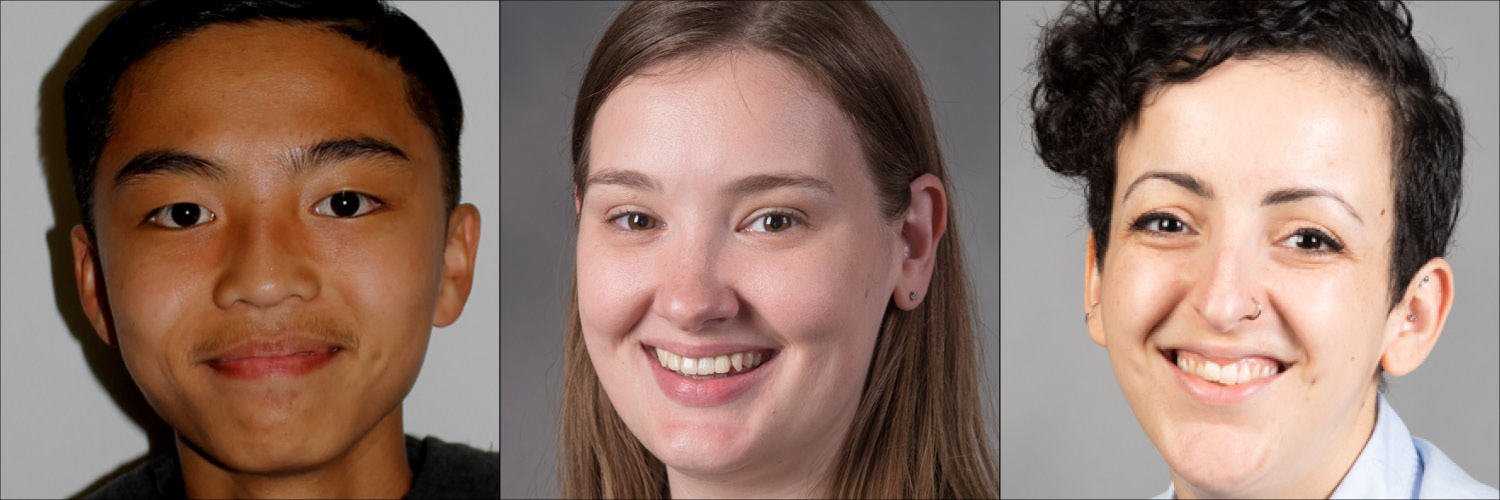
Written by Sean Ly ’21
The project “equity in teamwork” was designed by Sean Ly, Libby Haywood and Hannah Mesouani to create resources enabling faculty to maintain high quality instruction while pursuing methods that promote equity in the classroom. In institutions which lack diversity, students who are of minoritized identities are disproportionately impacted by lack of academic resources and social dynamics among campuses that are not reflective of their identities. Sean began conducting interviews with minoritized students from many different majors (biology, chemistry, sociology, psychology, nursing, business, philosophy, theatre, etc.) who are either currently attending or have recently attended Illinois Wesleyan.
The goal was to interview 25 students at IWU — virtually due to COVID-19 circumstances — who are of minoritized identities (5% of the non-white student population). The interviews helped shape our understanding of the student experience, which sharpened our ability to search for practices in the academic literature that will be impactful in promoting equitable student success at IWU. This work is being continued throughout the 2021 academic year.
Amy Gourley ’21 with Associate Professor of Psychology Mignon Montpetit Jolly
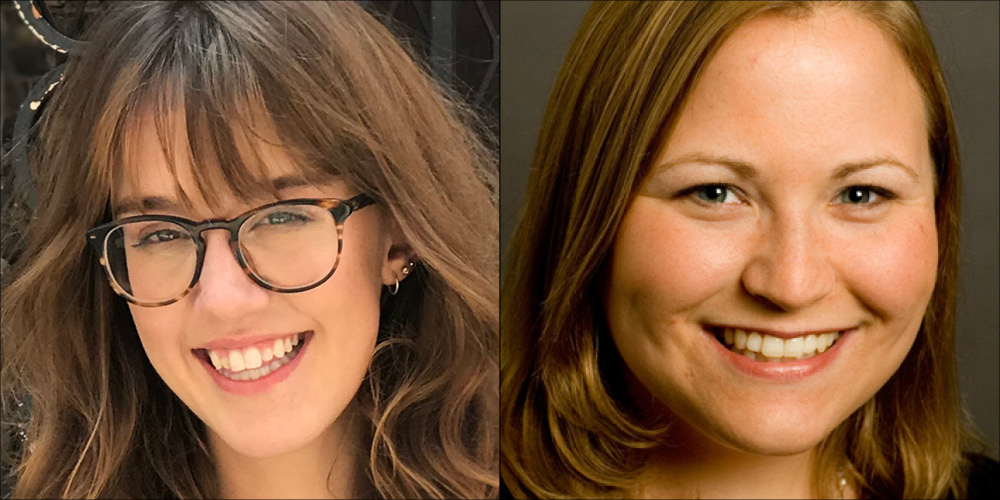
Written by Associate Professor of Psychology Mignon Montpetit Jolly
Throughout the pandemic, senior Amy Gourley and I have been working on some important extensions of her Eckley Summer Scholars project from Summer 2019. Conducted in collaboration with the Bloomington Housing Authority, the project investigated relationships among aspects of stress, health, and well-being, as well as personal and social variables that impact these relationships, in elders living in public housing. Although the primary purpose of the project was to evaluate the efficacy of The Happy Campaign, a broad, community-level intervention designed to increase residents’ well-being, in so doing, we had a unique opportunity to capture snapshots of the stress-and-coping process in a sample that is generally more economically disadvantaged and more racially and ethnically diverse than the samples of community-dwelling elders who typically participate in my research; by investigating similarities and differences in the experiences of these groups, we learn far more about the role of contextual factors (like socioeconomic status) in the aging process than we would learn by studying either group alone.
Amy is first author on one peer-reviewed conference abstract showing that The Happy Campaign may have contributed to modest increases in self-reported health, exercise, and hope, as well as decreases in negative affect, across the study’s two timepoints; she will present this work virtually at the Gerontological Society of America's (GSA) Annual Meeting in early November. GSA is the largest interdisciplinary organization for scholars of aging, and draws scholars from across the globe.
Amy is third author on a second abstract for the conference, as well. In that presentation, we present evidence that hope moderates the relationship between stress and depression; that is, highly-stressed individuals who are low in hope reported the highest levels of depressive symptoms in the study, whereas individuals who were highly-stressed but also high in hope did not exhibit the same distress. Taken together, the results of the two projects suggest that hope may be important in helping mitigate the impact of life stress on vulnerable individuals, and that it can be augmented in the context of a short-term, cost-effective intervention, even for elders facing myriad, compounded stressors.
Janiyah Williams ’22 with (former) Associate Dean of Students and Chaplain Elyse Nelson Winger
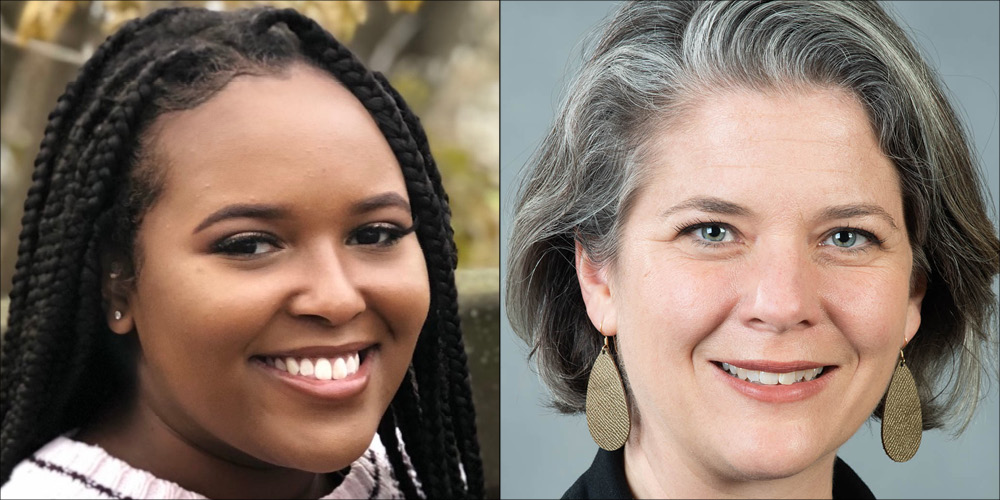
Written by Janiyah Williams ’22
Over the summer, I was a Summer Enrichment Program (SEP) intern and had the privilege of working with Elyse in the Dean of Students Office to revise our Title IX policy to meet the updated federal regulations. For this project, I had to research the history of Title IX and attend meetings regarding the Title IX review process at IWU, as well as meetings related to the development of new sexual violence prevention programs. I also worked on revising the Not Alone website to make it more inclusive, user friendly, and student-centered. I developed content for the website and took the lead on creating the Pregnancy and Parenting Students page and the Healthy Relationships page. My last project was assisting in the development of the new Titan Consent Campaign materials for Turning Titan Orientation. I developed words and phrases to be used on the new consent posters and held focus groups to see what students wanted to see included in the new campaign.
Because of COVID-19, all of my internship meetings were virtual. In order to adapt to a virtual environment, Elyse and I used Google Meet to hold meetings at least once a week to discuss my progress and address any issues or concerns that I was having. This allowed us to connect and debrief about the convoluted aspects of our research. Google Calendar helped me remain organized and keep track of all of the changes to my virtual schedule, which is something I didn’t really worry about before the pandemic. In the beginning, I assumed that the personal aspect of my internship would be lost because everything was online; however, Elyse was very responsive to emails and we checked in regularly with each other about work and personal related topics. Even though my internship was completely virtual, technology (as well as an amazing supervisor) allowed me to have a great experience and still develop the connection that I would have gotten out of an in-person internship.
Audrey Armstrong ’23 and Katie Vogler ’22 with Assistant Professor of Biology Tyler Schwend
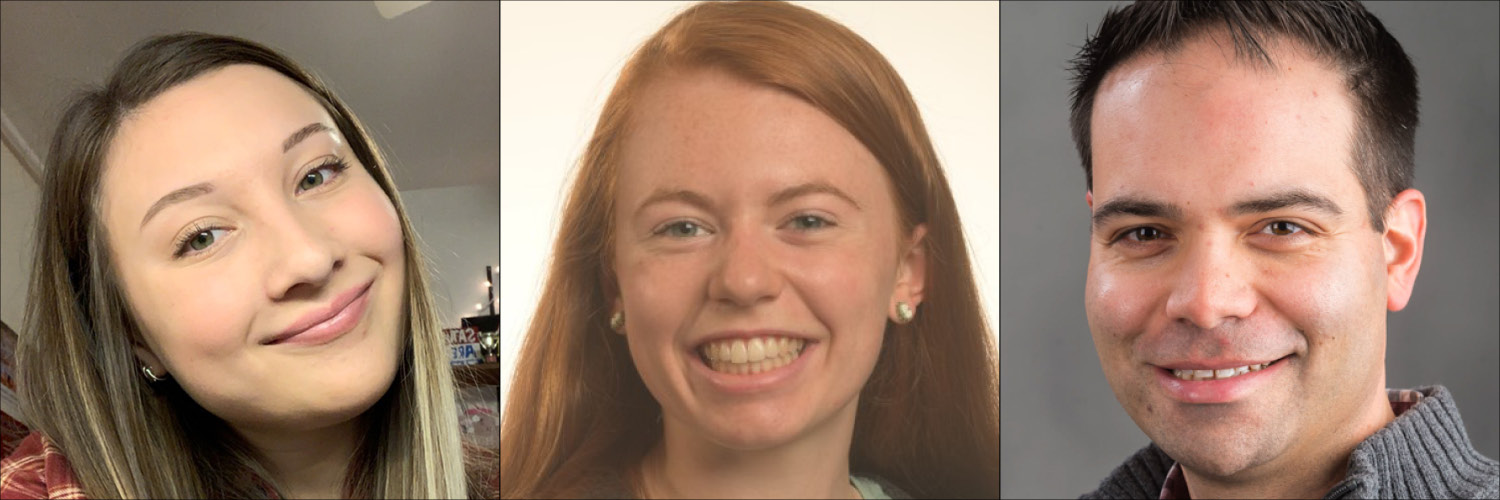
Written by Assistant Professor of Biology Tyler Schwend
My research has a long-standing interest in the development of the cornea, the small, transparent tissue on the surface of the eye. My research with IWU students has been particularly focused on questions that center around how the developing cornea acquires sensory nerves. These nerves are important for corneal health because they keep the cornea from drying out and send protective cues to the brain when harmful debris lands on the corneal surface. Earlier this year, a group of IWU students from my lab published a study that uncovered that thyroid hormone can accelerate the growth of nerves as they advance into the developing cornea (Patel et al,, 2020 Exp. Eye Res.).
Being that corneal nerves are cut and slow to regenerate during LASIK, and other common corrective surgeries involving the cornea, the findings from this study have led my research group to wonder whether thyroid hormone levels in LASIK patients may be a predictor for how fast (or slow) their nerves will regenerate following surgery. In line with this, it is well established that the negative side-effects of LASIK (dry eye, reduced corneal sensitivity) persist until corneal nerves fully regenerate and there is much unexplained variability among patients in the length of time it takes for the nerves to regenerate. This year I have been working with two students, Katie Vogler and Audrey Armstrong, to develop an invited research proposal that will be done in collaboration with ophthalmologists at Gailey Eye Clinic to monitor patient recovery following LASIK surgery and test whether recovery time is correlated with endogenous thyroid hormone levels. Due to COVID, this work has occurred remotely over Zoom and utilized Ames Library resources.
Katie, who is considering a career in ophthalmology, and Audrey, a NexSTEM scholar, have been reading through LASIK clinical studies and becoming familiar with clinical and basic research procedures to monitor corneal nerve recovery and detection of hormone levels in human tears and discussing. By the end of the semester, Katie and Audrey will pitch their research idea to Gailey with the hopes of seeking approval to begin the research with Gailey patients over the next year. This research project once initiated will undoubtedly involve dozens of IWU students over the next two to three years.
Ali Khatai ’23, Bobby Koirala ’22 and Alex Seehuus ’23 with Associate Professor of Mathematics Andrew Shallue
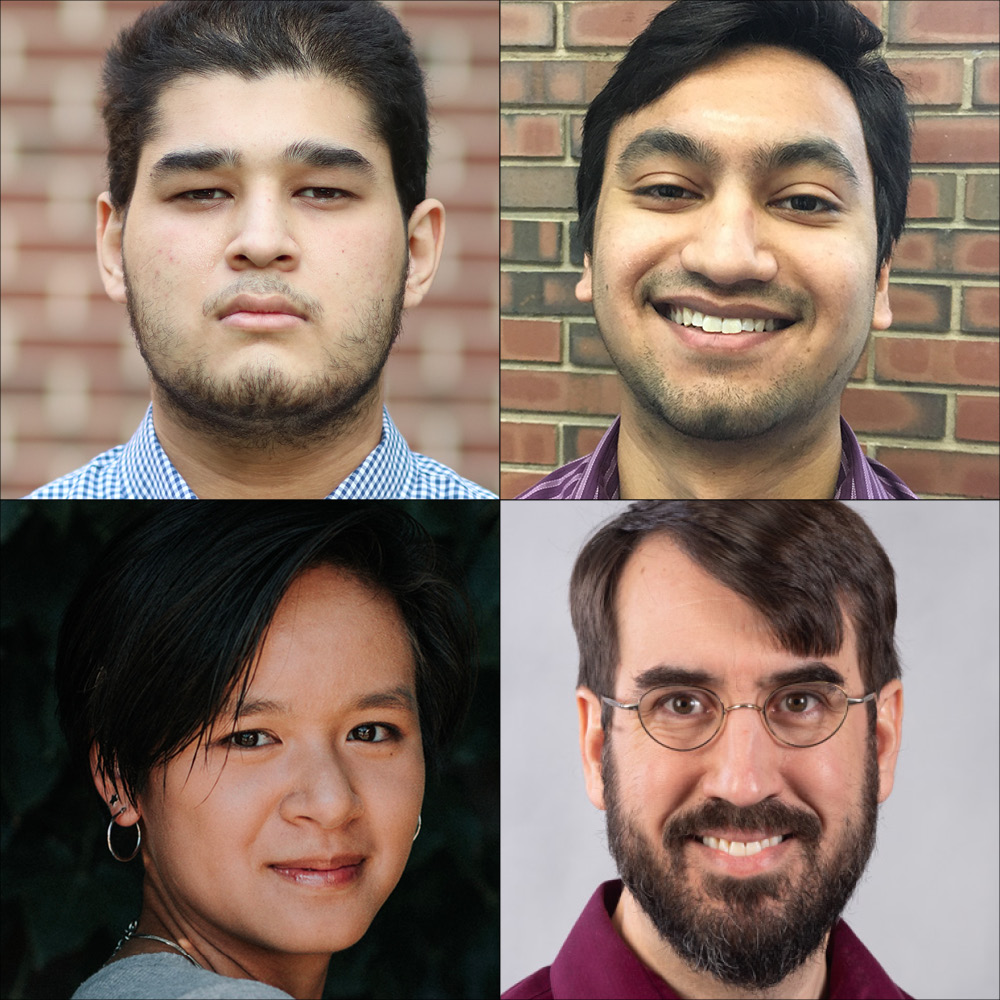
Written by Associate Professor of Mathematics Andrew Shallue
During the summer of 2020, I worked with three undergraduate students: Bhavin (Bobby) Koirala, Ali Khatai and Alexandra (Alex) Seehuus. Bobby was supported by an Eckley Fellowship, Ali by CS department funds, and Alex by startup funds. All three worked on aspects of the following problem: construct an order-2 Carmichael number with non-rigid factors.
The summer was a success. All work was done remotely through Google Meet. We would meet as a group of four at least twice a week, and I would meet one-on-one with students the other days of the week. The primary work students performed was programming in C++. Discussions involved: the math foundations of the overall problem, talking through algorithms and implementation details, code review, data gathered. All three students succeeded in writing code that shed light on how to tweak the parameter choices in the overall construction. Work continues at a slower pace this fall to finish implementation and complete the construction.
Learn more about research at Illinois Wesleyan: www.iwu.edu/research